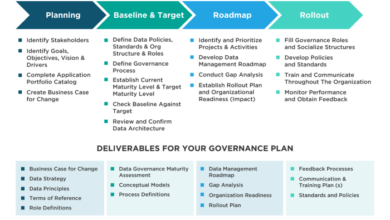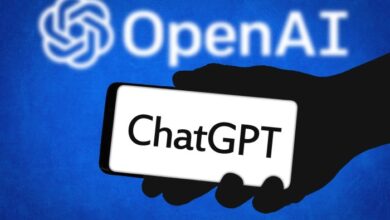
Global AI Alliance Initiative: Shaping the Future of Artificial Intelligence
The Global AI Alliance Initiative sets the stage for a fascinating discussion about the future of artificial intelligence. Imagine a world where nations collaborate to ensure responsible AI development, address ethical concerns, and unlock its transformative potential. This initiative isn’t just about technological advancement; it’s about shaping a future where AI benefits everyone.
The global AI landscape is rapidly evolving, with advancements in machine learning, deep learning, and natural language processing happening at an unprecedented pace. This progress presents both incredible opportunities and significant challenges. International collaboration is crucial to navigating these complexities and ensuring that AI is used for good.
Existing Initiatives and Frameworks

The landscape of global AI collaboration is marked by a growing number of initiatives and frameworks aiming to address the ethical, societal, and technical challenges posed by artificial intelligence. These organizations provide platforms for research, policy development, and the sharing of best practices, contributing to a more responsible and inclusive future for AI.
The Partnership on AI
The Partnership on AI (PAI) is a non-profit organization established in 2016 by leading technology companies, including Google, Facebook, Amazon, Microsoft, and IBM. PAI focuses on fostering collaboration between industry, civil society, and academia to address the societal implications of artificial intelligence.The organization’s core mission is to:
- Conduct research on the ethical, social, and economic implications of AI.
- Develop best practices and guidelines for responsible AI development and deployment.
- Engage in public dialogue and education on AI.
- Promote collaboration among stakeholders to address AI-related challenges.
PAI’s approach emphasizes the importance of multi-stakeholder engagement and transparency in AI development. The organization publishes research reports, hosts workshops and conferences, and develops tools and resources to support responsible AI development.
The Global Partnership on Artificial Intelligence (GPAI)
The Global Partnership on Artificial Intelligence (GPAI) is an international initiative launched in 2020 by France and Canada. GPAI aims to promote responsible and human-centered AI development and use. GPAI brings together governments, businesses, civil society, and research institutions from around the world to:
- Develop and share best practices for responsible AI development and deployment.
- Conduct research on the societal and economic impacts of AI.
- Promote international collaboration on AI policy and regulation.
- Foster public trust and understanding of AI.
GPAI operates through working groups focused on specific themes, such as data governance, AI for social good, and the future of work. The partnership’s approach emphasizes a collaborative and inclusive model, bringing together diverse perspectives to shape the future of AI.
The IEEE Global Initiative on Ethical Considerations in Artificial Intelligence and Autonomous Systems, Global ai alliance initiative
The IEEE Global Initiative on Ethical Considerations in Artificial Intelligence and Autonomous Systems (IEEE GEC) is a multi-stakeholder initiative launched by the Institute of Electrical and Electronics Engineers (IEEE) in 2016. The IEEE GEC focuses on developing ethical standards and guidelines for the design, development, and deployment of AI systems.
The initiative’s key objectives are to:
- Identify and address ethical considerations related to AI and autonomous systems.
- Develop ethical frameworks and standards for AI development and deployment.
- Promote responsible AI innovation and adoption.
- Educate and engage stakeholders on the ethical implications of AI.
The IEEE GEC’s approach is rooted in engineering principles and a commitment to ethical decision-making in AI. The initiative has published several reports and standards related to ethical AI, providing guidance for developers, policymakers, and other stakeholders.
Comparison of Approaches and Goals
These initiatives share a common goal of promoting responsible and ethical AI development, but they differ in their approaches and areas of focus.
- PAI focuses primarily on industry collaboration and the development of best practices for AI development and deployment.
- GPAI emphasizes international cooperation and the development of AI policies and regulations.
- The IEEE GEC prioritizes the development of ethical standards and guidelines for AI systems, grounded in engineering principles.
Each initiative contributes to a broader ecosystem of collaboration and knowledge sharing, promoting a more responsible and inclusive future for AI.
Challenges and Opportunities: Global Ai Alliance Initiative
The quest for global AI collaboration is fraught with challenges, but it also presents immense opportunities. Navigating these complexities is crucial for unlocking the full potential of AI for the benefit of humanity.
Data Privacy and Security Concerns
Data privacy and security concerns are paramount in the context of global AI collaboration. Sharing data across borders for AI training and development raises serious concerns about data protection and individual privacy.
- Data breaches and misuse:The potential for data breaches and misuse of sensitive information is a major concern. AI systems often require access to vast amounts of personal data, making them vulnerable to malicious actors. For example, a recent study by the Ponemon Institute found that the average cost of a data breach in 2023 was $4.24 million.
- Cross-border data transfer restrictions:Many countries have strict regulations governing the transfer of personal data across borders. These regulations are often designed to protect citizen privacy but can hinder AI collaboration by creating barriers to data sharing. The European Union’s General Data Protection Regulation (GDPR) is a prime example of such regulations.
- Lack of standardized data privacy regulations:The absence of globally standardized data privacy regulations makes it difficult for organizations to ensure compliance with different national laws. This complexity can discourage cross-border AI collaboration.
Regulatory Differences and Harmonization
The rapid evolution of AI technology has outpaced the development of comprehensive regulatory frameworks. Global AI collaboration requires addressing the significant differences in regulations across countries, leading to fragmentation and hindering the free flow of AI innovations.
- Varied regulatory approaches:Different countries have adopted different regulatory approaches to AI, ranging from proactive regulation to a more laissez-faire approach. For example, the European Union has taken a more proactive approach with its proposed AI Act, while the United States has adopted a more principles-based approach.
- Lack of global standards:The absence of globally recognized standards for AI development and deployment can create challenges for cross-border collaboration. This lack of standardization can lead to inconsistencies in AI systems, making it difficult to ensure interoperability and trust.
- Harmonization efforts:Several initiatives are underway to harmonize AI regulations globally.
The OECD’s AI Principles and the G20’s AI Principles are examples of efforts to establish common ground for AI governance. However, achieving true harmonization will require sustained international cooperation and dialogue.
Cultural and Societal Biases in AI Systems
AI systems are trained on data that reflects the biases and prejudices present in society. This can lead to the perpetuation of existing inequalities and discrimination, creating ethical dilemmas for global AI collaboration.
- Algorithmic bias:AI algorithms can inherit and amplify biases present in the data they are trained on. For example, facial recognition systems have been shown to be less accurate for people of color, leading to concerns about racial bias in law enforcement and other applications.
- Cultural differences:AI systems developed in one culture may not be suitable for use in another culture due to differences in language, customs, and values. For instance, AI-powered chatbots designed for Western audiences may not understand the nuances of communication in Asian cultures.
- Ethical considerations:Addressing biases in AI systems is a complex ethical challenge. It requires careful consideration of the potential impact of AI on different groups and the development of mechanisms to mitigate bias.
Ensuring Equitable Access to AI Benefits
Global AI collaboration must strive to ensure that the benefits of AI are distributed equitably across the world. This requires addressing issues of access, affordability, and inclusivity.
- Digital divide:The digital divide, which refers to the gap in access to technology and digital skills between different groups, can exacerbate existing inequalities in the AI era. Efforts are needed to bridge this divide and ensure that everyone has the opportunity to benefit from AI.
- Economic disparities:The development and deployment of AI can exacerbate economic disparities between countries and within societies. It is crucial to create policies and programs that promote equitable access to AI education, training, and job opportunities.
- Inclusive AI development:AI development should be inclusive, involving diverse perspectives and ensuring that the needs of marginalized groups are considered.
This can help to prevent AI from exacerbating existing inequalities and promote its use for social good.
The Global AI Alliance Initiative is all about fostering collaboration and responsible development in the field of artificial intelligence. It’s exciting to see how this initiative is influencing various industries, even fashion! Take, for example, the recent collaboration between Barbie and Missguided, barbie x missguided back , which showcases how AI can be used to create personalized and inclusive fashion experiences.
This partnership demonstrates the potential of AI to drive innovation and connect with diverse audiences, echoing the goals of the Global AI Alliance Initiative.
The Global AI Alliance Initiative aims to foster collaboration and ethical development in artificial intelligence. It’s inspiring to see such a global effort, and it reminds me of how even small actions can make a big difference. Just like how updating a thrifted photo frame can breathe new life into a piece, a little creativity can go a long way in making the world a better place.
If you’re looking for inspiration, check out these 5 ways to update a thrifted photo frame – you might be surprised by the results! Similarly, the Global AI Alliance Initiative seeks to harness the power of AI for good, fostering innovation while prioritizing responsible use.
The Global AI Alliance Initiative is a fascinating project, bringing together experts from around the world to discuss the ethical and practical implications of artificial intelligence. It reminds me of the incredible stories captured in the Novas Adoption Story Photo Book , where each image tells a unique tale of human connection and resilience.
Just like the book showcases the power of human connection, the Global AI Alliance Initiative aims to ensure that AI development is guided by shared values and a commitment to positive societal impact.







